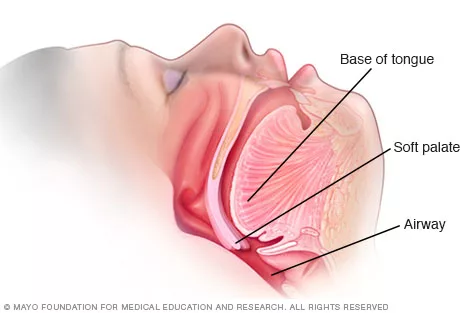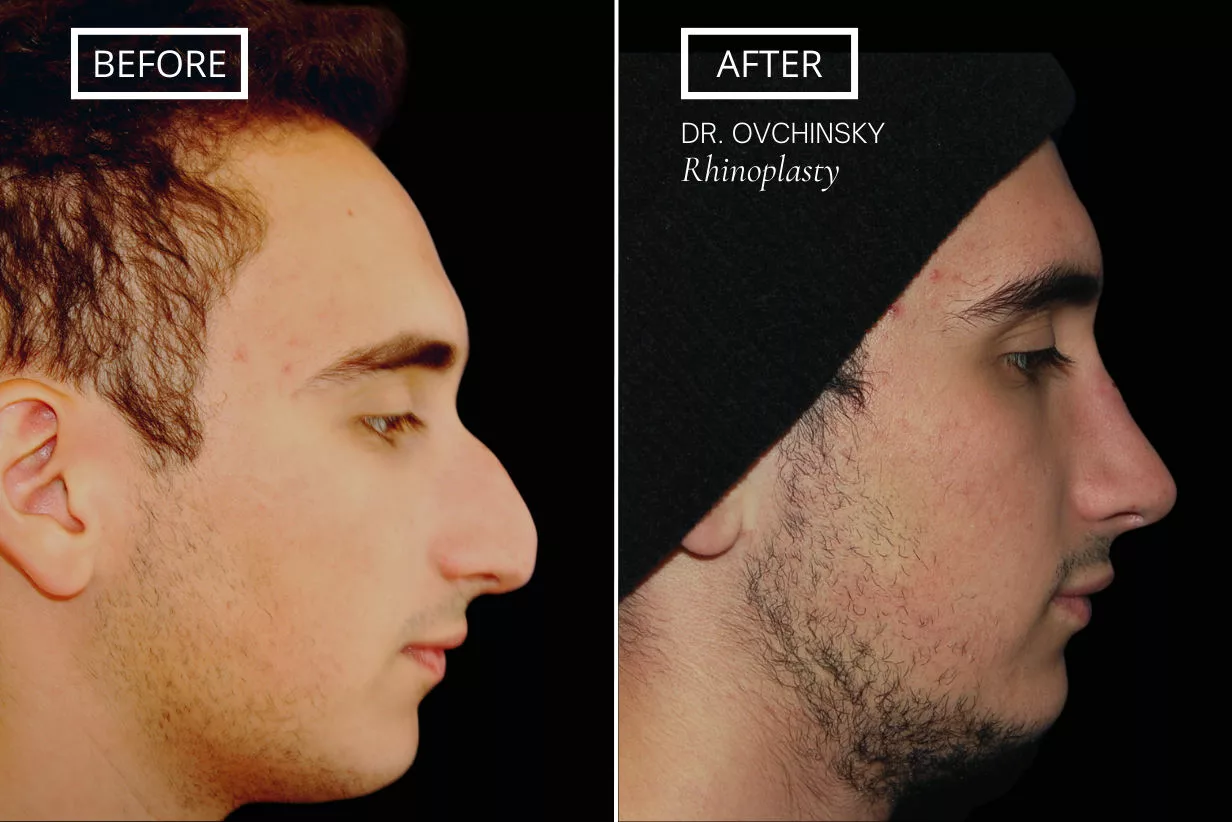If you or someone you know is struggling with snoring and the disruptive effects it can have on sleep and relationships, then this article is for you. Snoring, often caused by factors like nasal congestion or underlying health conditions, can be not only an annoyance but also a significant concern for overall well-being. Fortunately, there are a number of effective tips and remedies that can help tackle this issue head-on and provide relief. From lifestyle changes to home remedies, we will explore the various methods that can assist in stopping snoring and promoting a good night’s rest. Whether it’s yourself or a loved one, these practical solutions can make a world of difference in alleviating the burden of snoring and restoring peaceful nights.

Understanding the Cause of Snoring
It can be frustrating to deal with snoring, not only for yourself but also for those around you. Understanding the cause of snoring is the first step towards finding effective solutions. There are various physiological causes of snoring, as well as medical conditions that are associated with it. In some cases, snoring can also be a sign of a more serious condition known as sleep apnea. It is important to understand the implications of snoring on your health and lifestyle.
Physiological Causes of Snoring
Snoring often occurs when the flow of air through your mouth and nose is partially blocked during sleep. This blockage can be caused by various factors such as a relaxed throat, excess weight, or the position of your tongue. The relaxation of throat muscles can result in the narrowing of the airway, leading to vibrations and the sound of snoring.
Excess weight can also contribute to snoring as it can lead to the accumulation of fatty tissue in the throat area, further narrowing the airway. Additionally, the position of your tongue during sleep can obstruct the airflow and cause snoring. These physiological causes of snoring can be addressed through certain lifestyle changes and remedies.
Medical Conditions Associated with Snoring
snoring can be a symptom or side effect of certain medical conditions. For example, allergies and sinus infections can lead to nasal congestion, making it difficult to breathe through the nose. This can cause individuals to resort to breathing through their mouths, which can result in snoring. Additionally, structural abnormalities in the nose or throat, such as a deviated septum or enlarged tonsils, can also contribute to snoring.
It is important to recognize and address these underlying medical conditions in order to effectively manage snoring. By seeking appropriate medical treatment for these conditions, you may be able to significantly reduce or eliminate snoring altogether.
Snoring in Relation to Sleep Apnea
Snoring can sometimes be an indication of a more serious sleep disorder known as sleep apnea. Sleep apnea is characterized by pauses in breathing during sleep, which can last for a few seconds to a minute. These interruptions in breathing can be caused by a partial or complete blockage of the airway. Snoring is often accompanied by loud choking or gasping sounds as a person with sleep apnea attempts to resume breathing.
Sleep apnea can have serious implications on your health, as it can lead to daytime drowsiness, reduced cognitive function, and an increased risk of cardiovascular problems. If you suspect that you may have sleep apnea, it is important to consult a healthcare professional for a proper diagnosis and appropriate treatment.
Implications of Snoring on Health and Lifestyle
Snoring can have negative implications on both your health and lifestyle. Chronic snoring can result in poor quality sleep, leading to daytime sleepiness, difficulty concentrating, and irritability. It can also disrupt the sleep of your partner or other household members, causing strain in relationships. Additionally, snoring has been linked to an increased risk of cardiovascular problems, such as high blood pressure and heart disease.
Furthermore, snoring can impact your overall quality of life. It can make social situations uncomfortable, especially when sharing accommodations with others. It can also result in embarrassment or self-consciousness. By addressing the underlying causes of snoring and implementing necessary lifestyle changes, you can improve your health, relationships, and overall well-being.
Lifestyle Changes to Reduce Snoring
Making certain lifestyle changes can significantly reduce snoring and improve the quality of your sleep. These changes primarily focus on achieving a healthy weight, adopting a sleep-friendly diet, engaging in regular exercise, and maintaining a smoke-free lifestyle.
Achieving a Healthy Weight
Excess weight can contribute to the narrowing of your airway, leading to snoring. If you are overweight or obese, losing weight can help reduce the amount of fatty tissue in the throat area, allowing for better airflow during sleep. Incorporating healthy eating habits and regular physical activity into your daily routine can aid in weight loss and subsequently lessen the occurrence of snoring.
Switching to a Sleep-Friendly Diet
Certain foods and beverages can promote relaxation and contribute to better sleep. Incorporating sleep-friendly foods into your diet can help reduce snoring. For example, foods rich in magnesium, such as almonds and leafy greens, can help relax your muscles and promote better sleep. Avoiding heavy meals, spicy foods, and excessive alcohol consumption before bedtime can also help reduce snoring.
Role of Regular Exercise
Regular exercise not only contributes to overall health but can also help reduce snoring. Engaging in physical activity helps strengthen your throat muscles and improves respiratory function. This can prevent the relaxation of throat muscles during sleep, reducing the occurrence of snoring. Aim for at least 30 minutes of moderate-intensity exercise most days of the week for optimal results.
Importance of a Smoke-Free Lifestyle
Smoking can contribute to the inflammation and irritation of your airways, leading to snoring. The chemicals in cigarettes can also cause congestion and restrict airflow, making snoring more likely. Quitting smoking is not only beneficial for your overall health but can also significantly reduce snoring. Seek support and resources to help you quit smoking if needed.
Adjusting Sleeping Habits
Modifying your sleeping habits can also help alleviate snoring. By establishing regular sleep patterns, changing your sleep position, and avoiding certain substances before bed, you can reduce the frequency and intensity of snoring.
Establishing Regular Sleep Patterns
Going to bed and waking up at consistent times can help regulate your body’s internal clock and promote better sleep. This can reduce the likelihood of snoring. Aim for a consistent sleep routine by creating a relaxing bedtime routine and ensuring you get the recommended amount of sleep for your age.
Benefits of Changing Sleep Position
Sleeping on your back increases the likelihood of snoring, as it allows gravity to pull your relaxed throat muscles and tongue towards the back of your throat, obstructing airflow. Sleeping on your side or elevating your head with a pillow can help keep your airway open and reduce snoring.
Impact of Alcohol and Sedatives on Snoring
Consuming alcohol or taking sedatives before bed can relax your throat muscles, making snoring more likely. It is best to avoid these substances close to bedtime to reduce the occurrence of snoring. Opt for a relaxing routine that does not involve these substances to promote better sleep.
Pros and Cons of Sleeping on an Empty Stomach
Sleeping on an empty stomach can alleviate digestive discomfort but can also contribute to snoring. A completely empty stomach can result in muscle relaxation, including the throat muscles, which can increase the likelihood of snoring. It is important to strike a balance and avoid heavy meals close to bedtime, but also ensure you have consumed a light snack if hunger may disrupt your sleep.
Focus on Hydration
Staying properly hydrated can have a positive effect on reducing snoring. Hydration helps keep your nasal passages and throat moist, preventing congestion and the narrowing of airways.
Why Hydration Matters in Reducing Snoring
Dehydration can lead to the thickening of nasal mucus, making it difficult to breathe through the nose and increasing the likelihood of snoring. By staying hydrated, you can keep your nasal passages moist, promoting easier breathing and reducing snoring.
Recommended Daily Water Intake
It is recommended to drink at least eight 8-ounce glasses of water per day to maintain adequate hydration. However, individual water requirements may vary depending on factors such as age, activity level, and overall health. Listen to your body’s thirst signals and increase your water intake as needed.
Dehydration: A Common Trigger for Snoring
Ensure that you are drinking enough water throughout the day to prevent dehydration. Dehydration can contribute to snoring by causing congestion and inflammation in the airways. By keeping your body well-hydrated, you can reduce the occurrence of snoring.
Soothing Throat with Warm Liquids before Bedtime
drinking warm liquids, such as herbal tea or warm water with honey, before bedtime can help soothe and moisturize your throat. This can reduce the chances of snoring by keeping your airways moist and preventing congestion.
Medication and Snoring
Certain medications can exacerbate snoring or contribute to other sleep-related issues. Understanding the impact of medications on sleep and snoring can help you make informed decisions and explore alternative solutions if needed.
Common Medications that Exacerbate Snoring
Some medications, particularly those with a sedative effect, can relax the muscles in your throat, increasing the likelihood of snoring. These medications may include certain antidepressants, antihistamines, or muscle relaxants. If you notice an increase in snoring after starting a new medication, consult your healthcare provider for possible alternatives.
Considering Medical Treatments for Chronic Snoring
If lifestyle changes and remedies do not sufficiently reduce snoring, medical treatments may be considered. These treatments can range from minimally invasive procedures to surgical interventions. It is important to consult a healthcare professional who specializes in sleep disorders to determine the most suitable treatment option for you.
Over-the-counter Solutions to Snoring
There are also over-the-counter solutions available to help alleviate snoring. These may include nasal strips or dilators, which help open up the nasal passages, allowing for easier airflow. However, it is important to consult a healthcare professional before using these products to ensure they are appropriate for your specific situation.
How Medications Affect Sleep and Snoring
Certain medications can have an impact on your sleep patterns and snoring. For example, some medications may cause excessive daytime sleepiness or disrupt your sleep cycle, leading to an increased risk of snoring. It is important to discuss any concerns or side effects with your healthcare provider to ensure appropriate adjustments are made.
Devices to Aid Snoring
There are various devices available that can help reduce snoring by helping open up the airway and promote better breathing during sleep. These devices can range from nasal strips and dilators to anti-snoring mouth appliances and continuous positive airway pressure (CPAP) devices.
Snoring Aids: What Works and What Doesn’t
While there are many snoring aids on the market, it is important to choose one that is suitable for your individual needs. Nasal strips and dilators can be effective in opening up the nasal passages and reducing congestion. Anti-snoring mouth appliances can help keep the airway open and prevent snoring. CPAP devices are commonly used to treat sleep apnea but can also be beneficial for reducing snoring in certain cases. It is best to consult with a healthcare professional to determine the most appropriate device for you.
Nasal Strips and Dilators
Nasal strips and dilators are external devices that can be applied to the nose to help open up the nasal passages. These devices work by gently lifting and widening the nostrils, allowing for improved airflow. They can be an effective temporary solution for reducing snoring caused by nasal congestion.
Anti-snoring Mouth Appliances
Anti-snoring mouth appliances, also known as mandibular advancement devices, are dental devices that help reposition the jaw and tongue to keep the airway open during sleep. These devices can be custom-made by a dentist or purchased over-the-counter. They are effective for reducing snoring caused by tongue or jaw position.
Continuous Positive Airway Pressure (CPAP) Devices
CPAP devices are commonly used for the treatment of sleep apnea but can also be beneficial for reducing snoring in certain cases. These devices work by delivering a constant flow of air pressure through a mask, keeping the airway open during sleep. CPAP devices should be used under the guidance of a healthcare professional.
Natural Remedies to Stop Snoring
In addition to lifestyle changes and devices, there are various natural remedies that can help reduce snoring. These remedies include the use of essential oils, herbal remedies, breathing exercises, and alternative therapies such as acupuncture and acupressure.
Essential Oils for Snoring
Certain essential oils, such as lavender or peppermint oil, can help relax the throat muscles and promote better breathing. These oils can be used in a diffuser, applied topically, or added to a warm bath before bedtime. It is important to dilute essential oils properly and follow usage instructions for safe and effective use.
Herbal Remedies for Snoring
Herbal remedies, such as chamomile or valerian root, can have a calming effect and promote better sleep. These herbs can be consumed as teas or taken in supplement form. It is important to consult with a healthcare professional or herbalist to ensure they are safe for you and do not interact with any other medications you may be taking.
Breathing Exercises to Reduce Snoring
Several breathing exercises can help improve respiratory function and reduce snoring. These exercises typically involve deep breathing, various nasal techniques, or throat exercises. Regular practice of these exercises can strengthen the muscles involved in breathing and promote better airflow during sleep.
Acupuncture and Acupressure Points for Snoring Relief
Alternative therapies such as acupuncture and acupressure can help relieve snoring by targeting specific points on the body. These therapies aim to improve energy flow and balance within the body, resulting in better sleep and reduced snoring. It is important to seek these treatments from a qualified and experienced practitioner.
Surgical Procedures to Manage Snoring
For individuals with chronic and severe snoring, surgical procedures may be considered as a last resort. These procedures aim to address structural abnormalities or obstructions in the airway that contribute to snoring.
Understanding the Need for Surgery
Surgery for snoring is usually recommended when other conservative treatments have been unsuccessful or when there is an underlying structural issue that can be corrected. It is important to thoroughly discuss the potential risks, benefits, and expected outcomes with a healthcare professional before considering surgery as an option.
Types of Surgeries for Snoring
There are various surgical procedures available for snoring, depending on the underlying cause. These may include uvulopalatopharyngoplasty (UPPP), tonsillectomy, septoplasty, or nasal polyp removal, among others. Each procedure targets a specific area to alleviate the obstruction and reduce snoring.
Pros and Cons of Choosing Surgery
It is important to weigh the pros and cons of surgery for snoring before making a decision. While surgery can provide long-term relief for some individuals, it may not be suitable or necessary for everyone. Potential risks and side effects of surgery should be carefully considered, along with the expected benefits.
Success Rates of Snoring Surgeries
The success rates of snoring surgeries vary depending on the procedure and individual factors. It is important to have realistic expectations and consider the potential need for additional treatments or lifestyle modifications post-surgery. Consult with a healthcare professional who specializes in sleep disorders to determine the most appropriate treatment option for you.
Snoring and Sinus Infections
Sinus infections can contribute to snoring, as they often cause nasal congestion and inflammation. Understanding the relationship between sinus infections and snoring can help you effectively manage and treat both conditions.
How Sinus Infections Contribute to Snoring
Sinus infections, also known as sinusitis, can lead to nasal congestion, swelling, and increased production of mucus. These factors can obstruct the nasal passages, making it difficult to breathe through the nose and resulting in mouth breathing and snoring.
Considerations for Treating Snoring Associated with Sinus Infections
In cases where snoring is primarily caused by sinus infections, it is important to address and treat the underlying infection. This may involve antibiotics, decongestants, nasal sprays, or saline washes to relieve congestion and reduce inflammation. By effectively managing sinus infections, you can alleviate the symptoms of snoring.
Preventing Sinus Infections to Manage Snoring
Taking proactive measures to prevent sinus infections can also help manage snoring. This includes practicing good hygiene, such as washing your hands regularly, avoiding close contact with sick individuals, and maintaining a clean and dust-free environment. It is also important to stay well-hydrated and maintain a healthy immune system through a balanced diet and regular exercise.
Sinus Irrigation Methods
Sinus irrigation, also known as nasal irrigation or nasal rinsing, can be an effective way to clear the nasal passages of mucus and reduce congestion. This can be done using a saline solution and a neti pot or a nasal irrigation device. It is important to follow proper instructions and hygiene practices when performing sinus irrigation to avoid any complications.
Monitoring Progress and Maintaining Changes
Once you have implemented lifestyle changes, remedies, or medical treatments to reduce snoring, it is important to monitor your progress and make necessary adjustments. Regular check-ups and reviews with healthcare professionals are crucial in assessing the effectiveness of interventions and addressing any challenges that may arise.
Importance of Regular Check-ups and Reviews
Regular check-ups allow healthcare professionals to monitor your progress, provide guidance, and make any necessary adjustments to your treatment plan. They can also help identify any underlying medical conditions that may be contributing to snoring and ensure comprehensive care.
Recognizing Signs of Improvement
It is important to recognize signs of improvement in your snoring and overall sleep quality. This may include a reduction in the frequency and intensity of snoring episodes, improved daytime energy levels, and better quality sleep. Celebrate these signs of progress and continue to make lifestyle modifications as needed.
Addressing and Overcoming Challenges in Behavior Changes
Implementing lifestyle changes and maintaining them can sometimes be challenging. It is important to identify any obstacles or potential triggers that may hinder your progress and develop strategies to overcome them. This may involve seeking support from family, friends, or healthcare professionals to stay motivated and accountable.
Maintaining Lifestyle Modifications
To sustain the benefits of lifestyle modifications and maintain a snore-free sleep, it is important to continue practicing healthy habits in the long term. This includes maintaining a healthy weight, adopting a sleep-friendly diet, engaging in regular exercise, managing stress, and avoiding smoking or excessive alcohol consumption. By prioritizing your health and well-being, you can effectively reduce snoring and improve your overall quality of life.
In conclusion, understanding the causes of snoring and implementing appropriate lifestyle changes, remedies, or medical treatments can significantly reduce snoring and its impact on your health and lifestyle. Whether it’s achieving a healthy weight, adjusting sleeping habits, focusing on hydration, exploring natural remedies, considering surgical options, or managing underlying medical conditions, there are various strategies available to help you stop snoring and enjoy restful, peaceful nights of sleep. Remember to consult with healthcare professionals for personalized guidance and support on your journey to a snore-free life.




